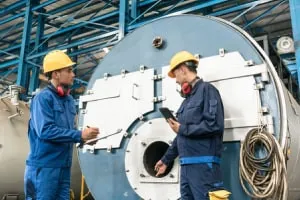
Diploma in Marine Boilers 
Get a comprehesive understanding of Diploma in Marine Boilers. This is a free course from Alison. AZ Class provides this course data for free. Learn more certificate and details here. Discover the fascinating world of marine boilers with this free online Diploma in Marine Boilers course. Learn about the application of high-pressure boilers in ships and their role in powering propulsion turbines. Dive into steam theory, fluid properties, heat transfer modes, and technical terms related to steam generation. Explore boiler design, classification, and popular boilermakers. Understand the optimization of marine boilers for steam production and their various functions. Gain insights into fire and water tubes, combustion chambers, and heat recovery systems. Master the maintenance of safety valves and operation of soot blowers. Perfect for marine engineering students, professional boilermakers, and anyone interested in shipping mechanics. Enroll now and enhance your knowledge in this crucial field. ▼
ADVERTISEMENT
Course Feature
![]() Cost:
Cost:
Free
![]() Provider:
Provider:
Alison
![]() Certificate:
Certificate:
No Information
![]() Language:
Language:
English
Course Overview
❗The content presented here is sourced directly from Alison platform. For comprehensive course details, including enrollment information, simply click on the 'Go to class' link on our website.
Updated in [October 07th, 2023]
What does this course tell?
(Please note that the following overview content is from the original platform)
This Diploma in Marine Boilers is a free online course that begins by introducing you to the application of high-pressure boilers to run the main propulsion turbines of ships. Although this system is on the decline because of newer combined-cycle plants that harness the flexibility of diesel and steam plants, the use of auxiliary and exhaust gas boilers remain an established practice on board diesel-powered propulsion plants. The course will introduce you to steam theory, the components and properties of fluids, the combination of the important modes of heat transfer, as well as the technical terms that are used in connection with steam generation. It will outline the steam engine thermodynamic cycles, the advantages of the steam plant and the role of steam in power generation. The principle of steam generation, the features of boiler design, classification of boiler types and the popular boilermakers will also be covered in this course.
The material then explains how a marine boiler is optimized for producing steam, as well as how it can be used for main and auxiliary functions like running steam and cargo pump-turbines, oil heating, crew accommodation heating and turbo generation. You will study fire and water tubes, composite boiler types such as the low-pressure boiler as well as how all boilers have a furnace or combustion chamber where fuel is burnt to release energy. The course will teach you the process where the air is supplied to the boiler furnace to enable the combustion of fuel to take place, as well as how the water fed into the boiler can be used to produce steam. It highlights the other important aspect of heat recovery from the diesel engine exhausts, which is the exhaust gas boiler or economizer, as well as how these can be both fire or water tube types and how they contribute significantly to overall plant efficiency. As you work through this marine boilers course, you will analyze the differences between the subcritical and supercritical power plants, types of once-through boilers and the characteristics of D-type boilers. The function of various components in a boiler and boiler mountings, along with mastering the characteristics of the main steam stop and feed check valves is then discussed. Learn all about the feed regulatory system that can be used in steam boilers of a low-pressure system, as well as how to monitor the movement of the float. The examples of a float control application, the element of water level control in high-pressure systems, as well as the importance of the safety and relief valves, will be demonstrated.
This course on the mechanics of marine boilers will help improve your knowledge of the vital maintenance of the safety valves, including the procedure to set a safety valve of improved high-lift type, as well as the operation of the soot blowers and you should enrol if you are a marine engineering student, professional boilermaker or interested in this crucial part of shipping mechanics.
We considered the value of this course from many aspects, and finally summarized it for you from two aspects: skills and knowledge, and the people who benefit from it:
(Please note that our content is optimized through artificial intelligence tools and carefully reviewed by our editorial staff.)
What skills and knowledge will you acquire during this course?
During this course, learners will acquire the following skills and knowledge:
1. Understanding of steam theory and its application in marine boilers.
2. Knowledge of the components and properties of fluids used in marine boilers.
3. Understanding of the different modes of heat transfer and their combination in steam generation.
4. Familiarity with technical terms used in connection with steam generation.
5. Knowledge of steam engine thermodynamic cycles and the advantages of steam plants in power generation.
6. Understanding of the principle of steam generation and the features of boiler design.
7. Familiarity with the classification of boiler types and popular boilermakers.
8. Understanding of how marine boilers are optimized for producing steam and their use in main and auxiliary functions.
9. Knowledge of fire and water tubes, composite boiler types, and the combustion process in boilers.
10. Understanding of the supply of air to the boiler furnace and the use of water to produce steam.
11. Knowledge of heat recovery from diesel engine exhausts through exhaust gas boilers or economizers.
12. Understanding of subcritical and supercritical power plants, once-through boilers, and D-type boilers.
13. Familiarity with the function of various components and mountings in a boiler.
14. Mastery of the characteristics and operation of main steam stop and feed check valves.
15. Knowledge of feed regulatory systems and water level control in low-pressure and high-pressure systems.
16. Understanding of the importance and operation of safety and relief valves in marine boilers.
17. Skills in the maintenance and setting of safety valves, as well as the operation of soot blowers.
This course is suitable for marine engineering students, professional boilermakers, and individuals interested in the mechanics of marine boilers.
Who will benefit from this course?
This course on Marine Boilers will benefit individuals who are interested in or involved in the field of marine engineering, professional boilermakers, and those who are interested in understanding the mechanics of marine boilers in the shipping industry. Specifically, the course will be beneficial for:
1. Marine Engineering Students: This course will provide students with a comprehensive understanding of marine boilers, including steam theory, boiler design, and the optimization of marine boilers for various functions. It will enhance their knowledge and skills in the field of marine engineering.
2. Professional Boilermakers: Boilermakers who work in the marine industry will benefit from this course as it covers the principles of steam generation, boiler design, and the maintenance of safety valves. It will help them improve their expertise in marine boiler maintenance and operation.
3. Individuals Interested in Shipping Mechanics: Those who have an interest in the mechanics of shipping and want to understand the functioning of marine boilers will find this course valuable. It provides detailed information on the components, types, and functions of marine boilers, as well as their role in power generation on ships.
Course Syllabus
Steam Theory and Main Boilers
In this module, you will be introduced to the steam theory, as well as the heat transfer and properties of the fluid. You will also be introduced to the steam engine thermodynamic cycle, as well the main boilers features and the principles of boiler design.Double Evaporation Boiler
In this module, you will be introduced to the double evaporation boiler, as well as the foster wheeler ESD boilers. You will also be introduced to the V2M-8 main Boiler combustion engineering, as well as the once-through boiler types and the main steam stop valve.Diploma in Marine Boilers - First Assessment
You need to score 80% or more to pass.Safety Valves
In this module, you will be introduced to the safety valve and relief valve definitions and terms. You will also be introduced to a low lift safety valve, improved high lift, high capacity (full lift) safety valve, as well as the maintenance of the safety valve.Soot Blowers
In this module, you will be introduced to the concept of soot blowers for high boilers, as well as the diamond retractable soot blower. You will also be introduced to the main fuel system, as well as the process of liquid fuel burning in an open furnace.Diploma in Marine Boilers - Second Assessment
You need to score 80% or more to pass.Course assessment
Course Provider
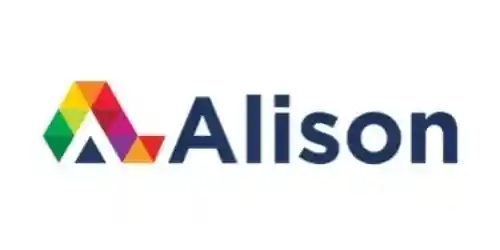
Provider Alison's Stats at AZClass
Discussion and Reviews
0.0 (Based on 0 reviews)
Explore Similar Online Courses

Introduction to Household Water Treatment and Safe Storage

Learning Through Play with LEGO Braille Bricks

Python for Informatics: Exploring Information

Social Network Analysis

Introduction to Systematic Review and Meta-Analysis

The Analytics Edge

DCO042 - Python For Informatics

Causal Diagrams: Draw Your Assumptions Before Your Conclusions

Whole genome sequencing of bacterial genomes - tools and applications
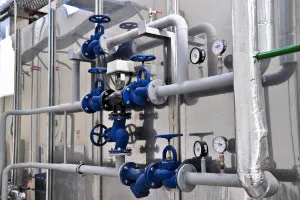
Industrial Engineering - Control Valve Basics
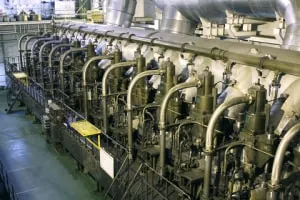
Diploma in Marine Diesel Engines
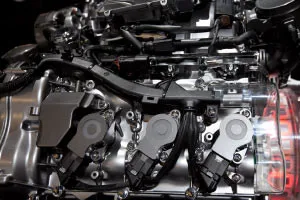

Start your review of Diploma in Marine Boilers